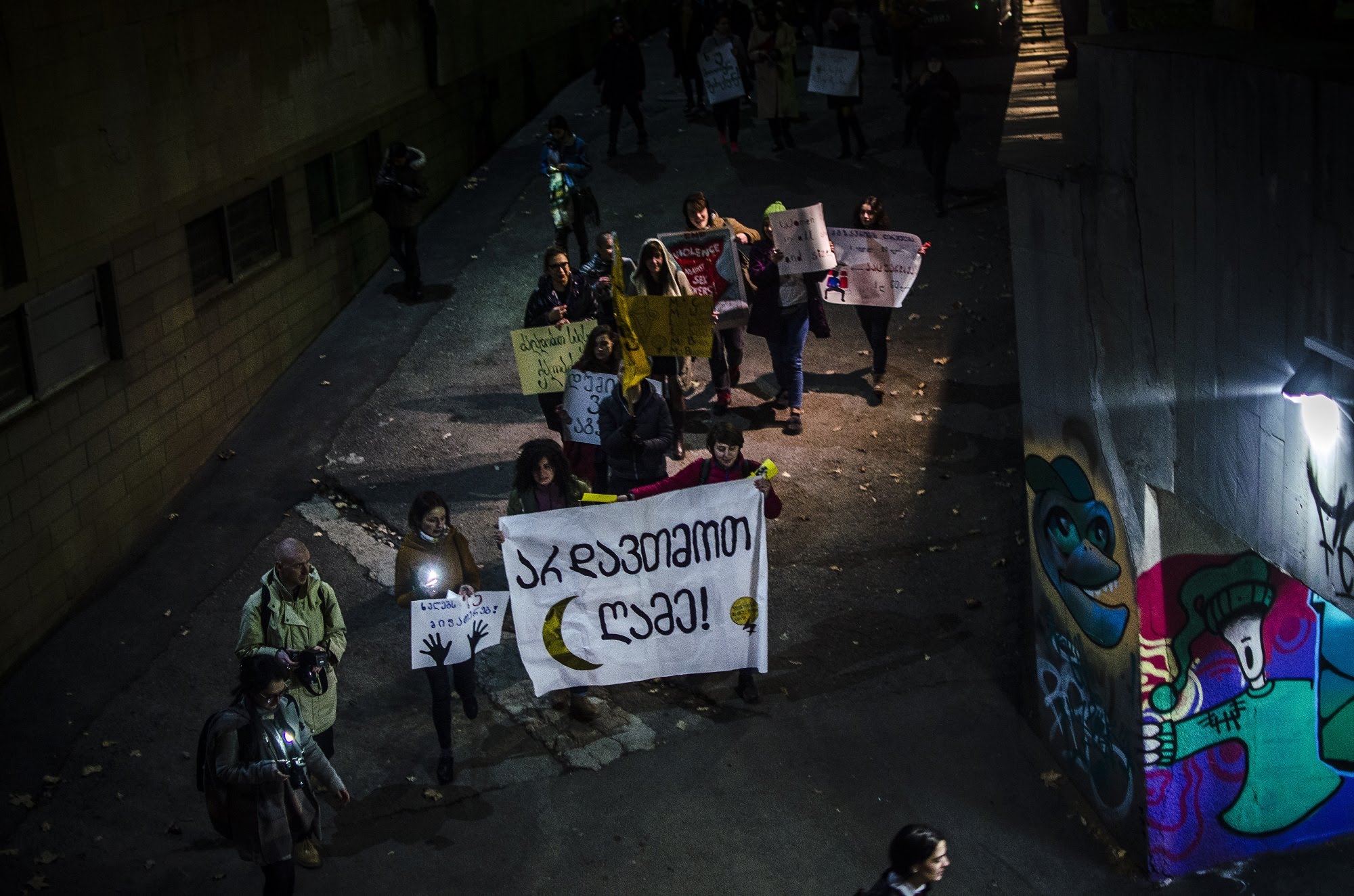
Sexual harassment in public and at work will become an administrative offence in Georgia if a new bill initiated by the Parliament’s Gender Equality Council is passed.
Unlike previous unsuccessful attempts proposed by women’s groups, the new bill has the support of the ruling Georgian Dream Party
The bill was officially registered in Parliament on 23 January and proposes amendments to several laws including the administrative code and labour code.
The bill defines sexual harassment as ‘unwanted sexual behaviour against a person in a public space, aimed at and/or causing a dishonouring, frightening, hostile, humiliating, or offensive environment’.
The additions to the labour code would also define sexual harassment as ‘creating such circumstances that directly or indirectly worsen the conditions of a person as compared to other people working in a similar environment’.
Sexual harassment would be punishable by a fine of ₾300 ($110) on the first offence and ₾500 ($190) or community service if repeated within a year.
More severe cases, including sexual harassment of a minor, in the presence of a minor, or of a pregnant woman, would be punishable by a fine of up to ₾1,000 ($380) or 10 days in prison.
The bill defines ‘sexual behaviour’ as including making sexually explicit comments, showing genitalia, and other verbal or nonverbal sexual behaviour.
If the legislation is changed, the Public Defender’s Office will have the power to make binding recommendations on private entities in cases of discrimination.
Current legislation only requires public entities to fulfil the Public Defender’s recommendations.
The Public Defender’s Office has repeatedly requested this change since 2015, a year after parliament adopted an anti-discrimination law allowing them to look into accusations of discrimination.
The current legislation does not deem sexual harassment a form of discrimination.
[Read about sexual harassment throughout the South Caucasus on OC Media: No laws, just shame: Sexual harassment in the South Caucasus]
‘One in five have experienced harassment’
One in five women in Georgia said they had experienced some form of sexual harassment, according to a recent poll by UN Women. Nine per cent said they were victims of sexual violence as children.
Despite the extent of the problem, there are no legal means of protecting women against harassment, despite repeated calls for change from women’s rights groups.
According to a December 2017 poll by the Washington-based National Democratic Institute, 77% of people supported a bill against sexual harassment.
In late 2017, the Women’s Movement addressed Parliament with a petition to amend the administrative offences code and labour code to ensure that women were protected against undesirable encounters in public and in the workplace.
Although it received support from parliament’s human rights committee, no legal developments followed until now.
[Read more about women’s rights in Georgia on OC Media: Georgia’s feminists face an uphill battle for equality]
High profile accusations
In 2018, accusations of sexual harassment against two high profile men made headlines in Georgia, after a number of women publicly came forward.
In March, at least 10 women accused Zviad Devdariani, the former head of local NGO CiDA, of sexual harassment or sexual assault. The women came forward after Devdariani was nominated for a spot on the Public Broadcaster’s board of trustees.
Devdariani denied the allegations against him, claiming that the women were trying to discredit his professional reputation.
Devdariani initiated legal action against 11 people in June for ‘violating his honour and dignity’, including media personalities, politicians, and women’s rights activists.
On 2 November, the Public Defender’s Office said they had found that Devdariani sexually harassed three women; inquiries into claims by two others were terminated due to a lack of evidence.
[Read more about Devdariani’s case on OC Media: Georgian Public Defender: Devdariani sexually harassed three women]
Also in March, the chair of Georgia’s Public Registry, Papuna Ugrekhelidze, resigned after two former employees accused him of sexual harassment.
A report by the Coalition for Equality, a bloc of local rights groups, documented accusations levelled against Ugrekhelidze.
‘The head of the Public Registry would call the accusers offensive nicknames. The head of the Public Registry would tell others that the accusers were his “squirrels”, that he had sex with them, and that he could fire them anytime as he had hired them’, the report said.
In June 2018, Ugrekhelidze sued both women for insulting his professional reputation.
[Read more about Ugrekhelidze’s case on OC Media: Two women suing former Georgian Public Registry head for sexual harassment]




 7 February 2019
7 February 2019


